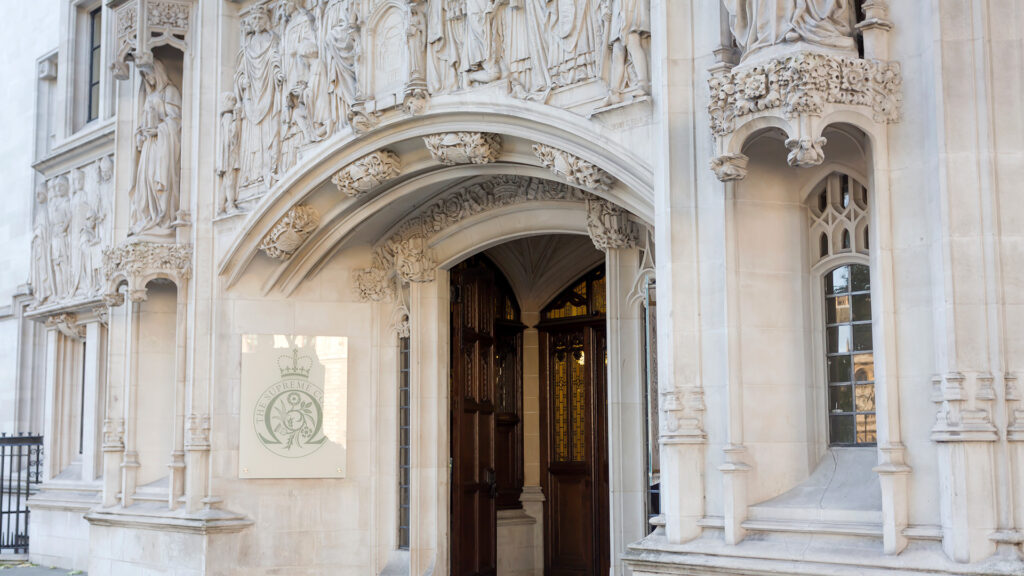UCP600
The Court of Appeal’s judgment demonstrates that the Court will interpret the UCP 600 in a way which reflects its underlying aims and purposes as well as international banking and trading practice. This led the Court to find that where an issuing bank had issued a notice that it was returning the documents presented under the letter of credit it must do reasonably promptly. Such an obligation was in line with banking practices and expectations and was imposed even though it is not expressly provided for in the UCP 600. Parties to letters of credit governed by the UCP 600 must therefore take care to respect not just its express provisions but also its underlying aims. In summary, the facts of the case were as follows.
In April 2010 we reported on the Commercial Court’s judgment inFortis Bank and Stemcor UK Limited v Indian Overseas Bank [2010] 1 Lloyd’s Rep. 227 in which the Commercial Court provided guidance on the interpretation of provisions of the Uniform Customs Practice of Documentary Credit (“UCP”) 600. Indian Overseas Bank (“IOB”) appealed against a number of the Commercial Court’s findings and, on 31 January 2011, the Court of Appeal handed down its decision.
The Court of Appeal’s judgment demonstrates that the Court will interpret the UCP 600 in a way which reflects its underlying aims and purposes as well as international banking and trading practice. This led the Court to find that where an issuing bank had issued a notice that it was returning the documents presented under the letter of credit it must do reasonably promptly. Such an obligation was in line with banking practices and expectations and was imposed even though it is not expressly provided for in the UCP 600. Parties to letters of credit governed by the UCP 600 must therefore take care to respect not just its express provisions but also its underlying aims. In summary, the facts of the case were as follows.
IOB had opened five letters of credit in favour of Stemcor under contracts for the sale of containerised scrap metal, with Fortis acting as the advising bank. The L/Cs were expressly subject to UCP 600. Stemcor made a number of drawings under each of them. Stemcor presented the documents under L/Cs 1-3 which Fortis accepted and paid Stemcor the amount due. The documents were forwarded to IOB. The documents presented under L/Cs 4 and 5 were also forwarded by Fortis to IOB.
IOB rejected the documents on the basis of a number of discrepancies. It therefore refused to reimburse Fortis in respect of the payments it had made under L/C 1-3 and refused to make payment to Stemcor in respect of L/Cs 4 and 5. IOB issued a notice under sub-article 16(c)(iii)(c) of UCP 600 stating that it was returning the documents in respect of the vast majority of the presentations.
Fortis and Stemcor applied to the Commercial Court seeking summary judgment against IOB. The four principle issues arising were:
- Whether there were discrepancies in the documents presented.
- Whether Fortis was technically a confirming bank.
- Whether the bill of lading date was the date of issue of the bill of lading or the date of shipment
- Whether IOB should be precluded under sub-article 16(f) of UCP 600 from claiming that the documents did not constitute a complying presentation.
In the Commercial Court, Hamblen J found that the only discrepancies in the documents were in the beneficiary’s consolidated certificate and also found against IOB on the second and third issues. The fourth issue was subject to a preliminary issue hearing in January 2010 where it was held that IOB, having elected to return the documents under article 16, was under an obligation to return the documents with reasonable promptness. The fact that IOB had failed to do so meant that it was precluded by article 16(f) of UCP 600 from claiming that the documents were discrepant.
The three issues subject to the appeal were:
- Whether IOB was precluded under sub-article 16(f) from relying on the discrepancies.
- Whether the Bill of Lading date was the date of shipment.
- On cross appeal by Stemcor/Fortis, whether there was a discrepancy in the beneficiary’s consolidated certificate.
The first of these issues is of wide importance and application. IOB’s contention was that, on a proper construction of article 16, the issuing bank was not required to return the documents but simply to give a notice. Alternatively, if there was an obligation to return the documents, then that obligation arose under an implied term of the L/C and not under article 16. If that was the case, Fortis/Stemcor could not rely on article 16(f) which provides that “if an issuing bank… fails to act in accordance with the provisions of this article, it shall be precluded from claiming that the documents do not constitute a complying presentation.” The Court of Appeal accepted that article 16(f) would only apply if the obligation arose under article 16 and therefore the issue was whether the obligation to return the documents arose under the UCP or outside the UCP.
The Court of Appeal held that IOB was required to act in accordance with the notice given under article 16(c) and return the documents. Firstly, the Court held that the issuing bank has no option but to comply with the option it had chosen. In issuing a notice under article 16(c)(iii)(c), IOB was required to return the documents. Secondly, standard international banking and trading practices require an obligation to act in accordance with such notices and where an issuing bank elects to return documents, it is required to do so promptly and without delay. Thirdly, article 16(e), which permits the issuing bank having given notice under article 16(c)(iii)(a) or (b) to act in a different manner, would only be necessary if article 16(c) imposed an obligation on the issuing bank. Thus, where a bank elects to return the documents, it is required to do so with reasonable promptness.
The Court adopted a purposive interpretation of the UCP 600 in accordance with its underlying aims and reflecting international banking practice. Given the international application of the UCP 600, the Court of Appeal considered that a literalistic and national interpretation needed to be avoided. Whilst there was no express obligation on the issuing bank to return the documents promptly and without delay upon giving notice, such an obligation was implicit in the wording of the article and was in line with international practice. Once IOB had elected to reject the documents, it breached this obligation by failing to return the documents for a substantial period of time and was therefore precluded under article 16(f) from relying on the discrepancies.
On the bill of lading issue, it was held that the L/C clearly referred to presentation within 21 days from the date of the bill of lading and not the date of shipment. As such the date of the bill of lading was as stated on its face and there was nothing in the UCP that could displace that clear provision in the L/C.
On the cross appeal, it was held that the L/C on its ordinary reading required the beneficiary’s consolidated certificate to certify that the negotiating bank had been advised to despatch the shipping documents to the opening bank at Stemcor’s cost. Therefore, in certifying that the costs were not Stemcor’s but the issuing bank’s, the certificate was clearly discrepant and the cross appeal was also rejected.
The Court of Appeal’s findings in relation to preclusion under article 16 are likely to have far reaching consequences and serve as a warning to issuing banks to act in accordance with any notices they issue. The judgment imposes a fairly strict obligation on issuing banks and is therefore likely to have implications which the Court of Appeal did not necessarily appear to appreciate. The Court of Appeal did not consider that the obligation to return documents “promptly” or “within a reasonable time” would cause uncertainty although the exact meaning of these terms is likely to be tested in due course. In this case the Court of Appeal’s conclusion that the documents were not returned reasonably promptly was fairly straightforward given that IOB had issued the notices in November 2008 and the documents were not returned until February 2009. However, there will inevitably be cases where such a conclusion is less straightforward.
The judgment also sheds light on the Court’s approach to interpreting the UCP 600. In particular, the Court emphasised the international nature of the rules and avoided a national approach to interpretation that may not be applied in other jurisdictions. Where a letter of credit is governed by the UCP 600, parties must therefore ensure their conduct is in accordance with both the underlying aims of the UCP 600 and international banking practice. Where it is not, the parties risk breaching their obligations and incurring significant liabilities. IOB have sought permission to appeal to the Supreme Court.












-1024x683.jpg)